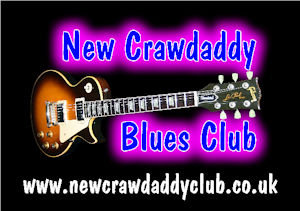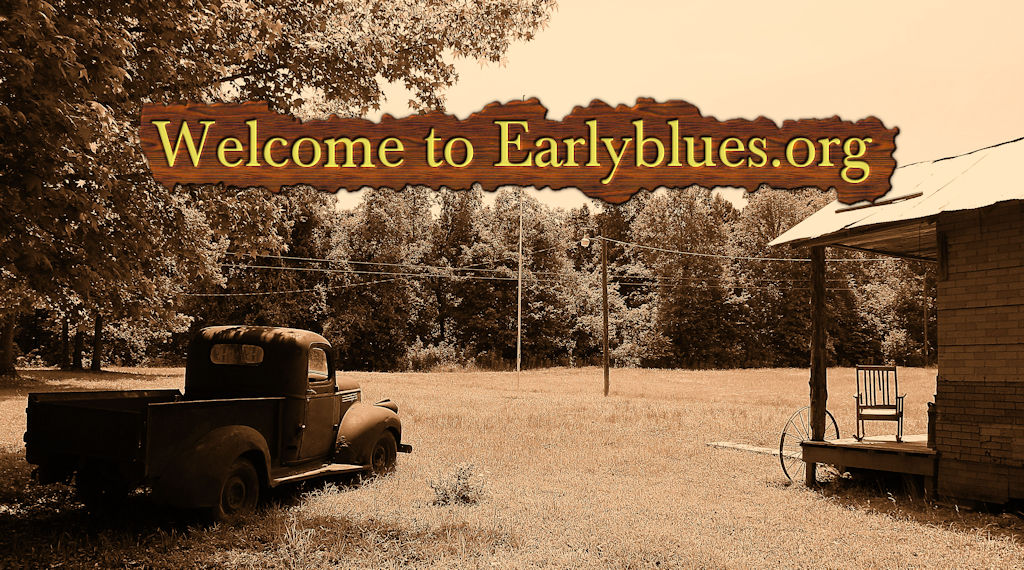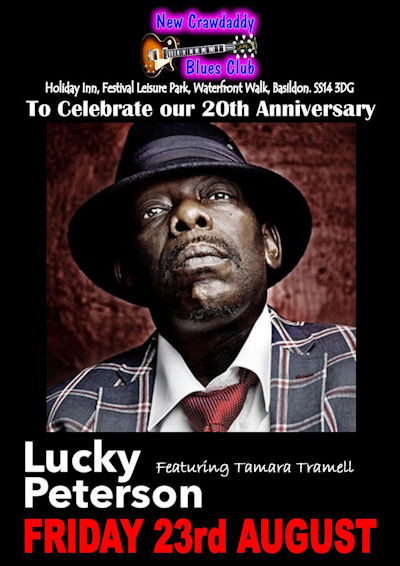New Crawdaddy Blues Club, Essex
 Here are details of the New Crawdaddy Blues Club which featured in the early British blues Scene, including the artists and bands that performed there and some details on ‘whatever happened to …’, plus readers memories of attending the club.
Here are details of the New Crawdaddy Blues Club which featured in the early British blues Scene, including the artists and bands that performed there and some details on ‘whatever happened to …’, plus readers memories of attending the club.
History of the New Crawdaddy Blues Club
The New Crawdaddy Club started back in September 1999 when Paul Dean, and brother-in-law Chris Rose, decided to come out of self-imposed music retirement and form a band to play the music they we had always loved, but never played in a band before, namely Blues. The intention was to find a venue where they could play Blues with an open invitation for like-minded musicians to come along and jam, quite simply for the pleasure of playing.
It soon became clear that there were many top quality Blues bands in the area who were finding it difficult to find a stage to showcase their talents. It was decided to invite those bands to do a guest spot each week with the band that Paul & Chris formed, The Heaters, acting as house band and performing the warm up spot. The format of The New Crawdaddy Club was set.
The Club fast came to the attention of some of the biggest names on the Blues circuit that also had few dedicated Blues Clubs in that part of the country, Essex, to include as part of their U.K. tours. From that point on, Paul adopted the mantle of Promoter and his phone never stopped ringing with requests to play the club coming from all over the UK, Europe, Australia, and the USA. The blend of top quality local bands, along with top National and International acts, proved to be a winning formulae and the club went from strength to strength and was credited by many bands as being the top blues venue in the South-East.
Having experienced, over the years of playing in bands, being treated as nothing more than hired hands by venue Managers and Promoters alike, Paul wanted to make the Crawdaddy a “customer and band-friendly“ venue where everyone was treated well and made to feel genuinely welcome, something that he, and the rest of the Crawdaddy crew, took great pride in and that was successfully achieved and was one of the many reasons for its success.
The club was duly recognised when Paul received the ‘Lifetime Achievement Award’ in the British Blues Awards of 2015. He accepted the personal award but was quick to recognise the team effort of everyone involved in the running of the Crawddaddy Club who all gave their time every week for nothing other than the joy of keeping blues music ‘live’.
The Club ran for 20 successful years before finally closing its doors in December 2019. During that time, it held the club in six different venues across Essex: The Belvedere, a popular Public House/Golf Centre/Function Complex in Billericay, near Basildon, Crondon Park Golf Club in Stock, a second stint back at the Belvedere, The Half Way House in Brentwood, Billericay Town Football Club and their final home at the Holiday Inn in Basildon.
The Crawdaddy played host to many established acts over its 20 year period such as Stan Webb’s Chicken Shack, Big Joe Turner, Otis Grand, Chris Farlowe, Buddy Whittington, Lucky Peterson to name just a few but Paul was always intent on gracing the Crawdaddy stage with up and coming, not so well known bands, who deserved to be heard by bigger audiences, many of whom went on to play bigger venues and carve themselves a successful career on the blues circuit as a result.
Source: Paul Dean
Many thanks to Paul for providing the history of the club.
Artists and Bands
As above.
Memorabilia
Memories
If you have memories or memorabilia of the New Crawdaddy Blues Club and would like to share them here, please email alan@earlyblues.com .
Reunions
Further Reading and Reference
Meaning of the word ‘Crawdaddy’ :
“Crawdaddy” and the more common “Crawdad” originated in the New Orleans, Mississippi Delta and the surrounding area of the U.S.A and are traditional nicknames for the native freshwater crayfish found in swamps, streams, and brooks. The word “crayfish” is modified from the old French “ecrevisse”, and is used in the more Northern States, but “Crawdad” and “Crawdaddy” are the names commonly used in the South and South East, along with the sef explanatory name “Mudbug” used in the swamp country. Crayfish are eaten all over the world and they are also frequently used as a fishing bait.
Internet references:
more soon …

